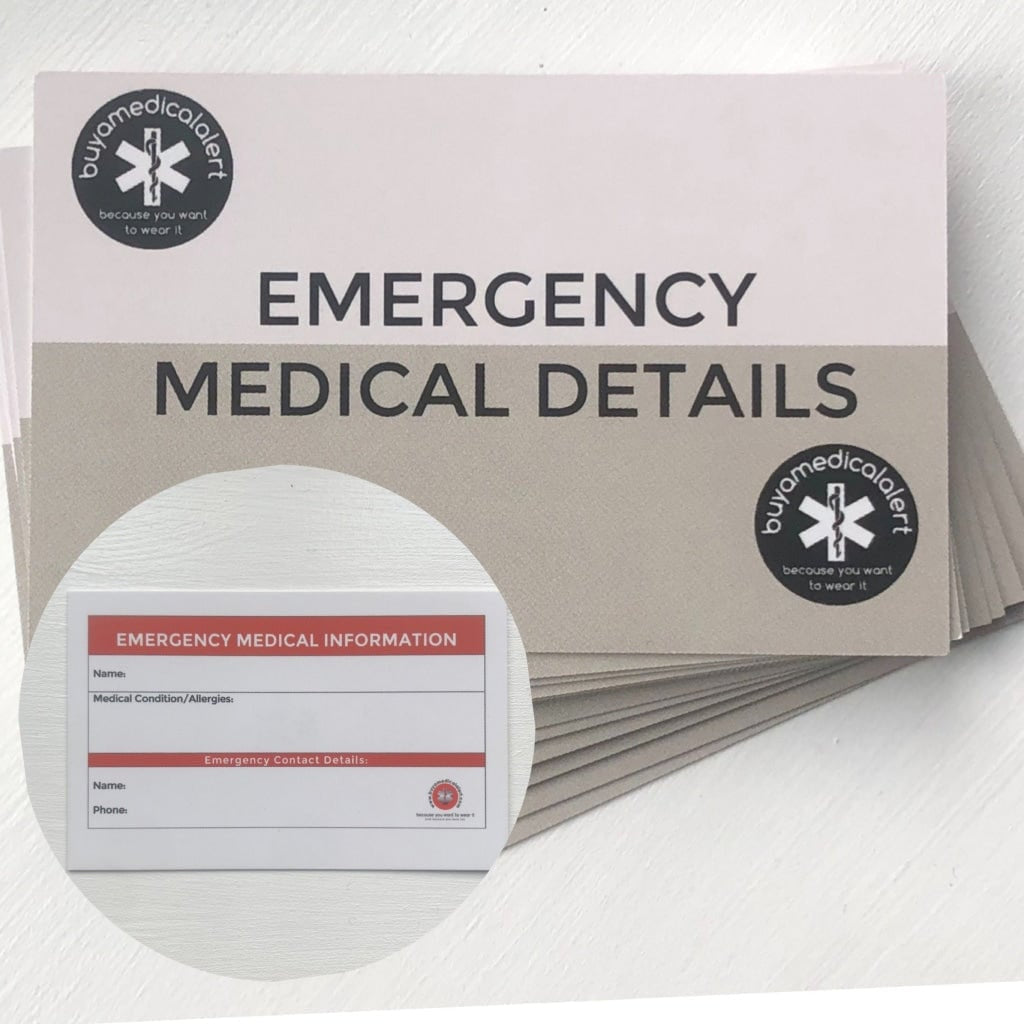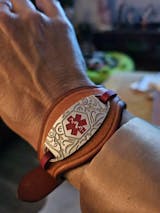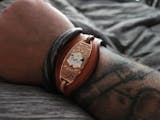Laing Tan Cuff Vintage Style Leather Medical Alert ID Bracelet - Personalised
Laing Tan Cuff Vintage Style Leather Medical Alert ID Bracelet - Personalised
Couldn't load pickup availability
Share
This striking modern chunky cuff style bracelet is made in gorgeous 2.2mm thick tan vintage genuine leather. It has a chunky watch style clap.
Adjustable up to 10 inches/24CM. At its widest point the strap is 3.7cm across. The stainless steel engraving plate has a large medical alert symbol and it is firmly secured with waxed cord.
All our bracelets include:
- FREE PERSONALISED ENGRAVING
- FREE VELVET TRAVEL POUCH
- FREE UK SHIPPING
- FREE GIFT BOX
- FREE MEDICAL CARD X 2
The medical cards are useful if you have multiple conditions or want to add further details such as your GP, NHS number, full list of meds.
Can my item be engraved?
Yes. We engrave on the reverse of the steel medical alert plate.
Up to 3 lines with maximum of 25 characters per line
The engraving plate is there for the essential, critical information paramedics, first responders and potentially even members of the public or schools need in an emergency. In the event of an emergency, the universal medical alert symbol on the front of your bracelet will alert medics to vital information. The plate is easily flipped over to reveal the engraving.
We suggest you include:
- Your name
- Any CRITICAL medical conditions, allergies or drugs that might affect how you are treated in an emergency (such as blood thinners)
- An ICE contact number - preferably a mobile
ICE stands for 'In Case of Emergency'. Emergency Services are also trained to look for ICE contacts in your phone so make sure it's in there too. Both android and iPhones will allow access to ICE contacts even when the phones are locked.
Specification
- METAL TYPE: STAINLESS STEEL ALERT TAG
- STYLE: ADJUSTABLE WATCH WRISTBAND
- BRACELET MATERIAL: GENUINE LEATHER
- PLATE ATTACHED WITH LEATHER CORD
- BRASS WATCH CLASP
Bracelet Size
Adjustable up to 10 inches/24CM
Who is my bracelet named after?
RONALD DAVID LAING (1927-1989) Psychiatrist
A medical graduate of the University of Glasgow, he was an influential and popular figure in the 1960s, not only in the field of psychiatry but also in literary and philosophical circles.
Although his views were often controversial (he claimed that schizophrenia was not an illness but a response to parental and sociological pressures) his sympathetic treatment of patients and emphasis on listening skills revolutionised modern therapeutic techniques.
Love it! This is very well made and will last me for years. It looks lovely right side up and sporty upside down!
I love this bracelet. It’s sturdy, looks lovely right side up and casual upside down. The loop keeper is attached so it doesn’t slide away and let the leather strap come loose. It will take some time to soften the leather but it will get there. I’m confident this bracelet will last me many years!























